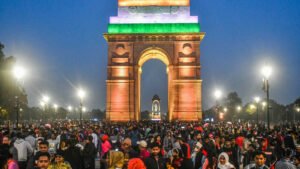Are you curious about the latest changes in U.S. visas and immigration rules for 2024? The United States is gearing up for significant updates in its immigration policies, especially concerning H-1B visas and green card backlogs. Here’s what you need to know:
H-1B Visa Reforms Expected in 2024
The year 2024 brings pivotal alterations in H-1B lottery procedures, specialised visas, fee structures, renewal programs, and overarching regulatory actions. This comprehensive guide delves into the imminent shifts, providing valuable insights for individuals from India and other nations aspiring to apply for US visas.

H-1B Lottery Changes
Starting from March 2024, the process for selecting H-1B visa applicants is set to change. The U.S. Citizenship and Immigration Services (USCIS) plans to modify the selection process due to a high volume of multiple submissions. Currently, when companies file more H-1B applications than the annual limit of 85,000, USCIS resorts to a lottery system. However, this has led to a rejection rate of over 75% for FY 2024 registrations.
Selection would be based on each unique beneficiary identified in the registration pool, rather than each registration. Each unique beneficiary would be entered in the selection process once, regardless of how many registrations were submitted on their behalf.
U.S. Citizenship and Immigration Services (USCIS)

To combat this, USCIS is proposing a new method: selecting H-1B registrations based on unique beneficiaries. This means using passport information to identify and eliminate duplicate entries, ensuring fairer chances for applicants.
Under the proposed update to the random selection process, registrants would continue to submit registrations on behalf of beneficiaries and beneficiaries would continue to be able to have more than one registration submitted on their behalf.
U.S. Citizenship and Immigration Services (USCIS)
Special Visa for AI
Many experts have opposed Biden government’s rule according to which to qualify as a specialty occupation the position must require “A U.S. baccalaureate or higher degree in a directly related specific specialty or its equivalent” for entering the occupation. It is said that language of the interim final rule would stop many talented foreign-born professionals from working in America.
Another provision has labelled business administration as a “general degree” and would not be sufficient to qualify someone for a specialty occupation “without further specialization.” Again, this language could discourage individuals with master’s in business from attending MBA programs in the United States.
Such restrictions clash with President Biden’s AI executive order, raising questions about their compatibility with attracting AI talent to the US.
H-1B Visa and Immigration Fee Increases
USCIS has proposed substantial fee hikes, including an Asylum Program Fee of $600 for employers filing Form I-129 (Petition for a Non-immigrant Worker) or Form I-140 (Immigrant Petition for Alien Worker).
Furthermore, the H-1B Electronic Registration Fee is set to increase by a staggering 2050%, from $10 (in 2019) to $215 per beneficiary. Employers will need to pay significantly more for various visa petitions, which could impact both applicants and companies.
Employers will be expected to pay 70% more for beneficiaries on H-1B petitions, 201% more for employees on L-1 petitions and 129% more for individuals on O-1 petitions. The final rule is expected to be published in April 2024 or later.
Domestic Visa Renewal Pilot Program
A much-awaited pilot program for H-1B visa renewals, starting from January 29, 2024, will specifically cater to Indian and Canadian nationals. However, only 20,000 visa holders will be eligible for this program, and it won’t cover dependents of H-1B professionals.
Other DHS Regulatory Actions
The Department of Homeland Security (DHS) has plans to publish a proposed rule in August 2024 focusing on employment-based immigration. This rule aims to modernise outdated provisions for individuals with extraordinary abilities, outstanding professors, researchers, and clarify requirements for various visa classifications.
The proposed rule would, if finalized . . . modernize outdated provisions for individuals of extraordinary ability and outstanding professors and researchers; clarify evidentiary requirements for first preference classifications, second preference national interest waiver (NIW) classifications, and physicians of national and international renown
Conclusion
Staying updated on U.S. visa and immigration changes is crucial if you’re planning to study or work in the United States. These reforms might affect application processes, fees, and eligibility criteria. What are your thoughts on these updates? Feel free to share your opinions or any questions you have in the comments below! Your insights might help others navigate these changes more effectively.



